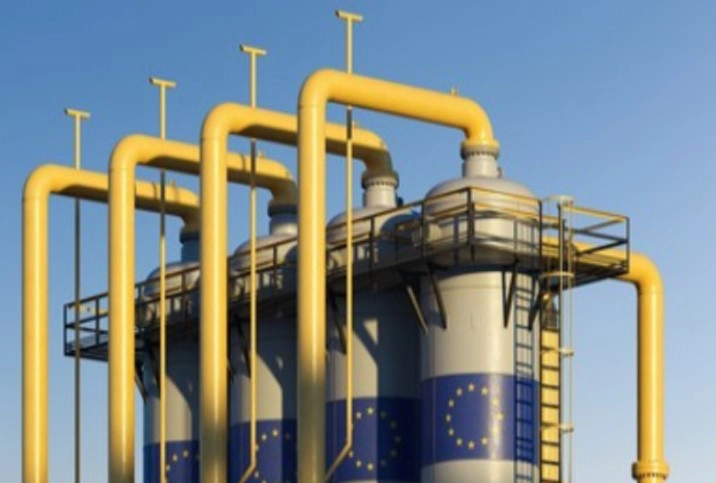
Source: Montel
“Hardly anyone is going to enter into 20-year deals like we had before,” said Klaus Reinisch, Met’s chief of sales. “You’re going to have a much shorter term [market] – with or without Russian supply – and a much more volatile environment now that LNG is here to stay.”
Europe’s gas prices surged to records above EUR 340/MWh – about 15 times their average of the past decade – due to the loss of Russian gas following Moscow’s war on Ukraine last year.
A mild winter and an abundance of LNG helped to slash prices to less than EUR 40/MWh, their lowest levels in almost two years.
Yet this decline should not lull gas-dependent industries into a false sense of security, Reinisch said. “The risk of low prices and high prices is higher than ever – and I think this risk will stay.
“Now, if you want to hedge or not at this position, this is not a binary question, you should now have a diversified strategy to de-risk your supply because you don’t know what’s coming next.”
Market opening
Met has spied an opportunity to fill the gaps that emerged with the sudden loss of Russian supplies that covered 40% of European imports, and significantly more in central and eastern Europe, in recent years.
The company, which began in Hungary in 2007, started trading LNG in 2016. Last year, it handled 109bcm of natural gas for clients in 14 European countries.
Now it is targeting the territory of some of the main beneficiaries of Europe’s newfound dependence on LNG – the oil and gas majors.
Last year’s energy crisis prompted a record 72m tonnes worth of new LNG contracts, according to Yanna Clara Prade, an LNG and gas specialist for Eneva, Brazil’s largest gas producer.
In the Atlantic basin, buyers tend to be large oil and gas companies such as BP, Shell or Total with a portfolio of assets spread globally up and down the supply chain.
They are well-placed to skirt the impact of EU climate laws that have deterred major European consumers such as utilities or chemicals makers from signing long-term LNG deals.
Higher prices
“Aggregators are taking this place,” Prade told Montel, referring to the energy majors. “They are going to offer more flexible and more shorter-term contracts in exchange for higher prices in European markets.”
She added: “European buyers are going to pay because they won't have much option – this is the new supply that is coming to the market.”
Europe’s major gas consumers have been contracting for periods of one to three months since February last year, said Istvan Heri, Met head of gas structured trading in central and eastern Europe.
Previously, at least one year was “basically the standard contracting period”.
The focus on short-term markets had complicated businesses’ efforts to plan their own medium term production processes, said Heri.
New normal
Yet, businesses would need to adapt to this new reality by either partnering with a supplier or building the relevant competence internally – “a difficult challenge for anyone”, he added.
“LNG is also an illiquid product,” said Met’s head of LNG trading, Esther Ang. “To be able to catch it at the right time is not simple.”
The EU’s LNG imports jumped more than 60% last year to just over 130bcm, according to the International Energy Agency. Imports were already 11% higher over the first four months of this year at just over 44bcm, Kpler ship tracking data showed.
